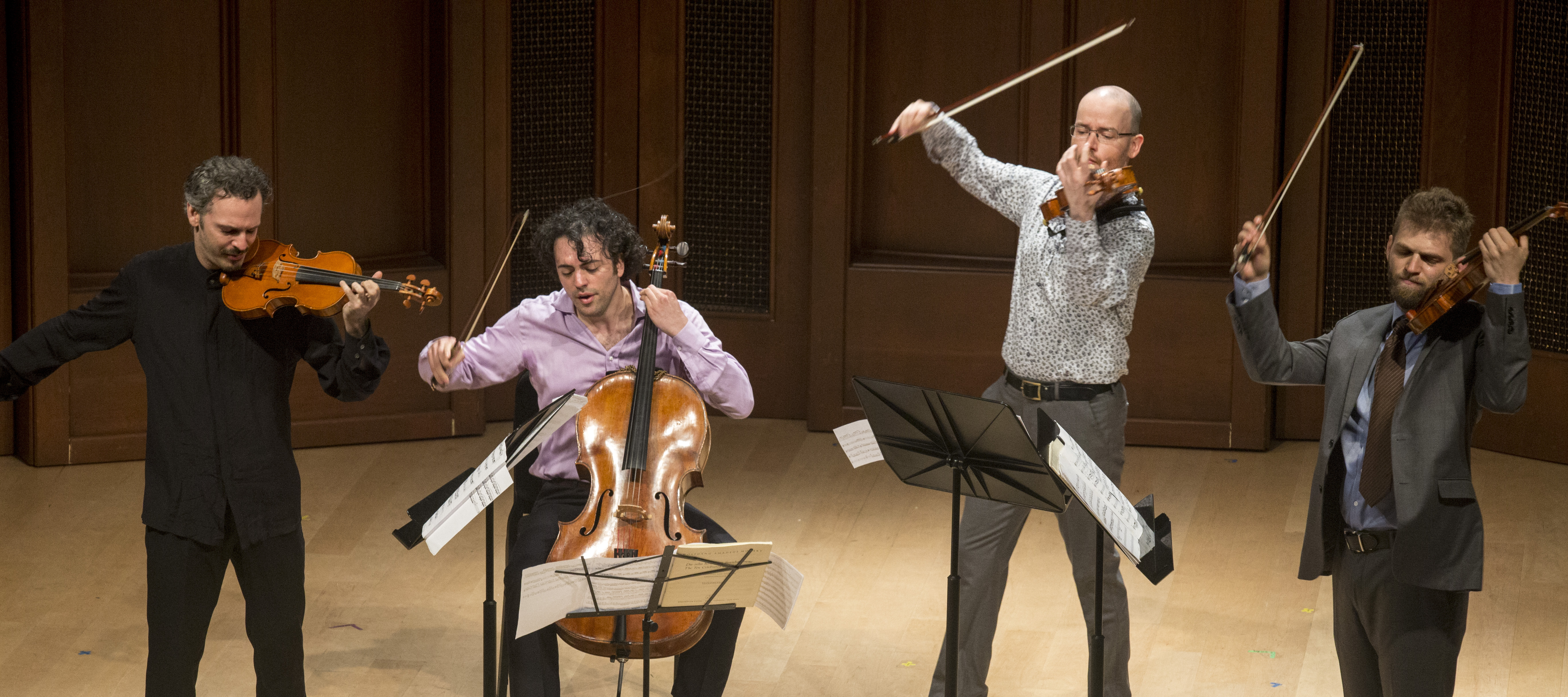Review: Brooklyn Rider at the Music Academy of the West
Innovative String Quartet Brought Brooklyn Sound to Montecito

Brooklyn Rider, the esteemed string quartet from New York, playing as part of the Mosher Guest Artist Recital series, drew a capacity audience to the Music Academy last week. The members of Brooklyn Rider — Johnny Gandelsman, violin; Colin Jacobsen, violin; Nicholas Cords, viola; and Eric Jacobsen, cello — with roots in the cross-cultural mission of Yo-Yo Ma’s Silk Road Project, are from the post–Kronos Quartet generation, and they plan adventurous programs that often extend beyond the established boundaries of the classical repertoire. Wednesday’s program was anchored on both sides of the intermission with masterpieces from the standard quartet catalog — the Quartet No. 15 in D Minor, K. 421 of Wolfgang Amadeus Mozart, and the Quartet No. 2, Sz. 67 of Béla Bartók — but the group also played compositions by one of its own members, Three Miniatures for String Quartet and Brooklesca, both written by Colin Jacobsen.
They opened with the Mozart, an expansive, emotionally charged composition written for Joseph Haydn. As was revealed later on in the evening, this was the first time Brooklyn Rider had ever performed this challenging work in public. The results were impressive regardless of that context, as the group demonstrated both outstanding focus and a jaunty, natural-sounding blend of instrumental voices. In his introductory remarks, violist Eric Jacobsen spoke in praise of the “chamber music conversion experiences” that he and other members of the group had gone through as participants in other, similar summer music camps, and he expressed his admiration for the way the Academy’s string fellows had begun the cycle of the Bartók quartets that Brooklyn Rider would complete by playing the Quartet No. 2.
Bartók, with his ethnographic interest in the folk music of North Africa, has long been a hero to Brooklyn Rider. Like Bartók, Colin Jacobsen has been influenced by exposure to non-Western musical traditions, and this is key to understanding his Three Miniatures for String Quartet, all of which are actually quite substantial compositions. The word “Miniatures” in the title refers not to the length of the pieces, but rather to their inspiration in the Persian tradition of miniature painting, and these vibrant and detailed works of visual art make a great analogue to the music here, which is by turns hypnotic, asymmetrical, and darkly suggestive.
In the second half, following a delightful blast of postmodern klezmer music courtesy of composer Lev “Ljova” Zhurban, Brooklyn Rider launched into the evening’s high point, a heroically charged and dramatic rendition of Bartók’s Quartet No. 2. This piece has absolutely everything going for it that one would expect from a mature composition by this artist: brilliant use of extended techniques such as strumming and pizzicato, great snatches of Hungarian folk melodies, and the composer’s characteristic sweeping approach to color and harmony. This music sounds big and open, and the group’s evident appreciation for it opened it up even further. By the time they got through with this wild ride, it would seem we had reached the end of the line, but in fact there was one more stop, as this train then became an express to Brooklyn, courtesy of Brooklesca. The Hahn Hall audience was thrilled by this hybrid music that touched on jazz and rock even as it hewed closely to the rigorous compositional principles of the modern masters.



